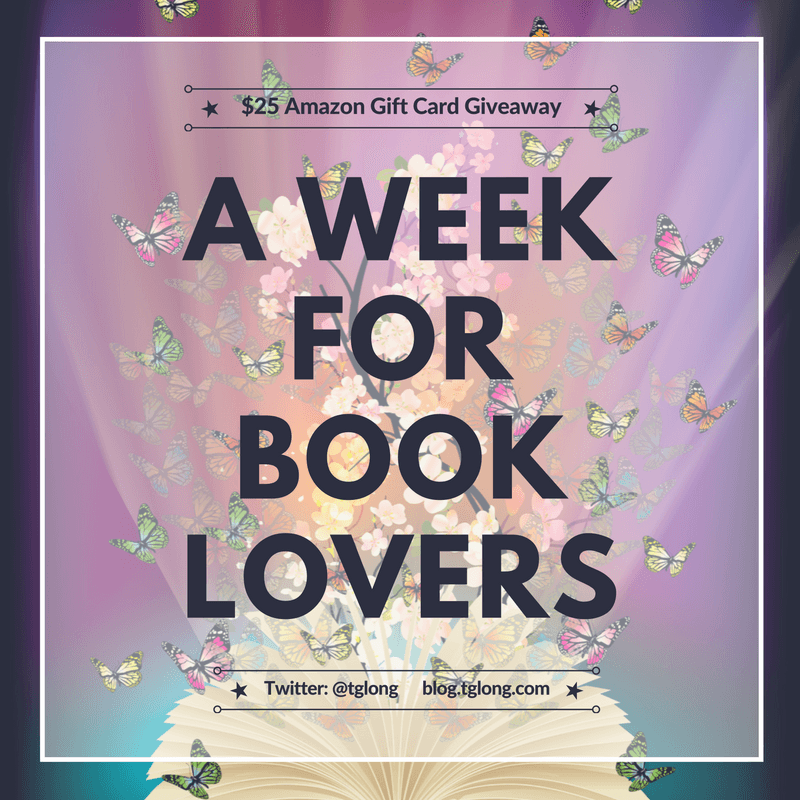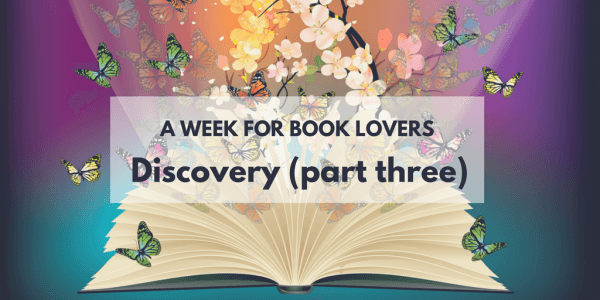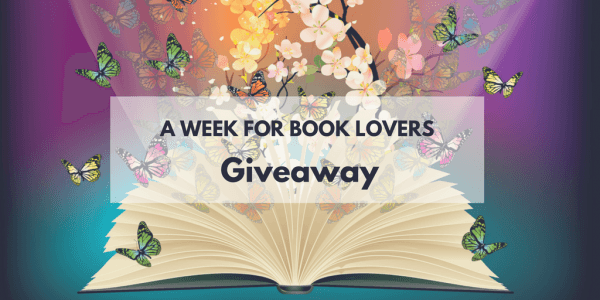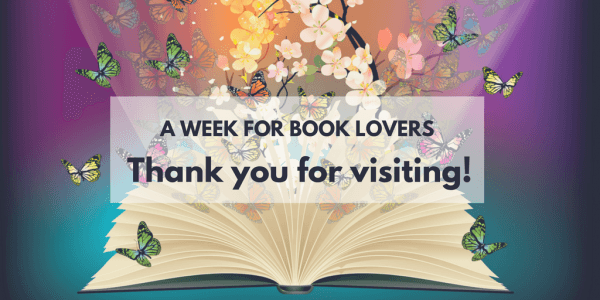I’ve enjoyed spotlighting several authors in a variety of “A Week with…” features over the past few months. Indeed, I’ve been very honored to be able to do so! 9th August is National Book Lover’s Day so this week I’ve chosen to turn the feature on its head a little in order to celebrate book lovers. Whether you’re an avid reader or a casual one, loyal to paperbacks or embracing eBooks, blogging your book loves or sharing them with friends over coffee, I hope you’ll find something to inspire you this week.
Thank you, book lovers. Your imaginations truly bring the words on paper to life.
You can also enter the giveaway below and you could win a $25 Amazon gift card.This giveaway will run for one month and you can share every day for extra entries.
Parts one and two featured discoveries made via Open Culture. As mentioned previously, I can’t recommend this site enough! If you’d like to see part one, click here and for part two, click here. If you have any discoveries to share, please leave me a comment.
Today, my focus shifts to audio and video lecture series available online. If you’re interested in learning more about an author, a genre or a period of literary history, it’s more than likely you can find a good course or series of lectures online. These lectures are often recorded while being delivered to students and there are often supplementary materials available to download. Here, I’ve chosen to showcase five highly rated options. If you do decide to follow any of these courses or lecture series – or perhaps if you’ve completed something similar previously – I’d love to hear about your experience!
This set of lectures covers a number of Shakespeare’s plays from Much Ado About Nothing to Richard III. Alongside the provided audio recordings, a number of ePub files are made available so you have easy access to the texts discussed.
Each lecture in this series focuses on a single play by Shakespeare, and employs a range of different approaches to try to understand a central critical question about it. Rather than providing overarching readings or interpretations, the series aims to show the variety of different ways we might understand Shakespeare, the kinds of evidence that might be used to strengthen our critical analysis, and, above all, the enjoyable and unavoidable fact that Shakespeare’s plays tend to generate our questions rather than answer them.
This series of lectures, each around 45-50 minutes long, covers titles from Flannery O’Connor, Jack Kerouac, Toni Morrison, and Cormac McCarthy, among others.
In The American Novel Since 1945 students will study a wide range of works from 1945 to the present. The course traces the formal and thematic developments of the novel in this period, focusing on the relationship between writers and readers, the conditions of publishing, innovations in the novel’s form, fiction’s engagement with history, and the changing place of literature in American culture. The reading list includes works by Richard Wright, Flannery O’Connor, Vladimir Nabokov, Jack Kerouac, J. D. Salinger, Thomas Pynchon, John Barth, Maxine Hong Kingston, Toni Morrison, Marilynne Robinson, Cormac McCarthy, Philip Roth and Edward P. Jones. The course concludes with a contemporary novel chosen by the students in the class.
Recorded in 2009, this series of 26 lectures covers a range of works, looking at William Blake, Jane Austen, Percy Shelley and several others.
The Romantic period witnessed the birth of major new forms of writing and thinking that are still relevant today. The social transition from an age of commerce and colonialism to an era of industry and imperialism radically changed the entire surface of the world. Sciences that we take for granted were born: ecology, biology, psychology. Adam Smith wrote his work on capitalism and the politics of working class was born, though it was not yet called socialism. This was the age of William Blake and Mary Shelley, of Jane Austen and William Wordsworth, of Coleridge and Keats and Mary Wollstonecraft. This class will give you a sense of what the period looked like and felt like (and sounded like); and a feel for the ideas it established about poetry, society and nature, which are still with us. In particular, we’ll be concentrating on how Romantic literature generated many of the ecological ideas that are with us today.
From romanticism to modern poetry now, with this series of videos. These lectures cover work from Elizabeth Bishop, T.S. Eliot, and Langston Hughes, along with many others. Supplemental material and/or audio files can also be downloaded from Open Yale.
This course covers the body of modern poetry, its characteristic techniques, concerns, and major practitioners. The authors discussed range from Yeats, Eliot, and Pound, to Stevens, Moore, Bishop, and Frost with additional lectures on the poetry of World War One, Imagism, and the Harlem Renaissance. Diverse methods of literary criticism are employed, such as historical, biographical, and gender criticism.
This series is hosted by Annenberg Learner and offers a look at thirteen key texts, including The Epic of Gilgamesh, The Odyssey, The Tale of Genji, and The God of Small Things. Each book’s section offers the opportunity to watch videos or read texts/excerpts and opinions. You can also explore a timeline. The connections section offers links to other reading, music, art, or movies for consideration.
Invitation to World Literature is a multimedia series introducing drama, epic poetry, and novels from many times and cultures. Thirteen half-hour videos form the centerpiece of the project, and feature a mix of writers, scholars, artists, and performers with personal connections to world literature, from Philip Glass to Alan Cumming, Wole Soyinka to Kristin Chenoweth, all brought together by Professor David Damrosch of Harvard University, a world-renowned expert on world literature. The project was funded by Annenberg Media.







I'd love to hear your thoughts!